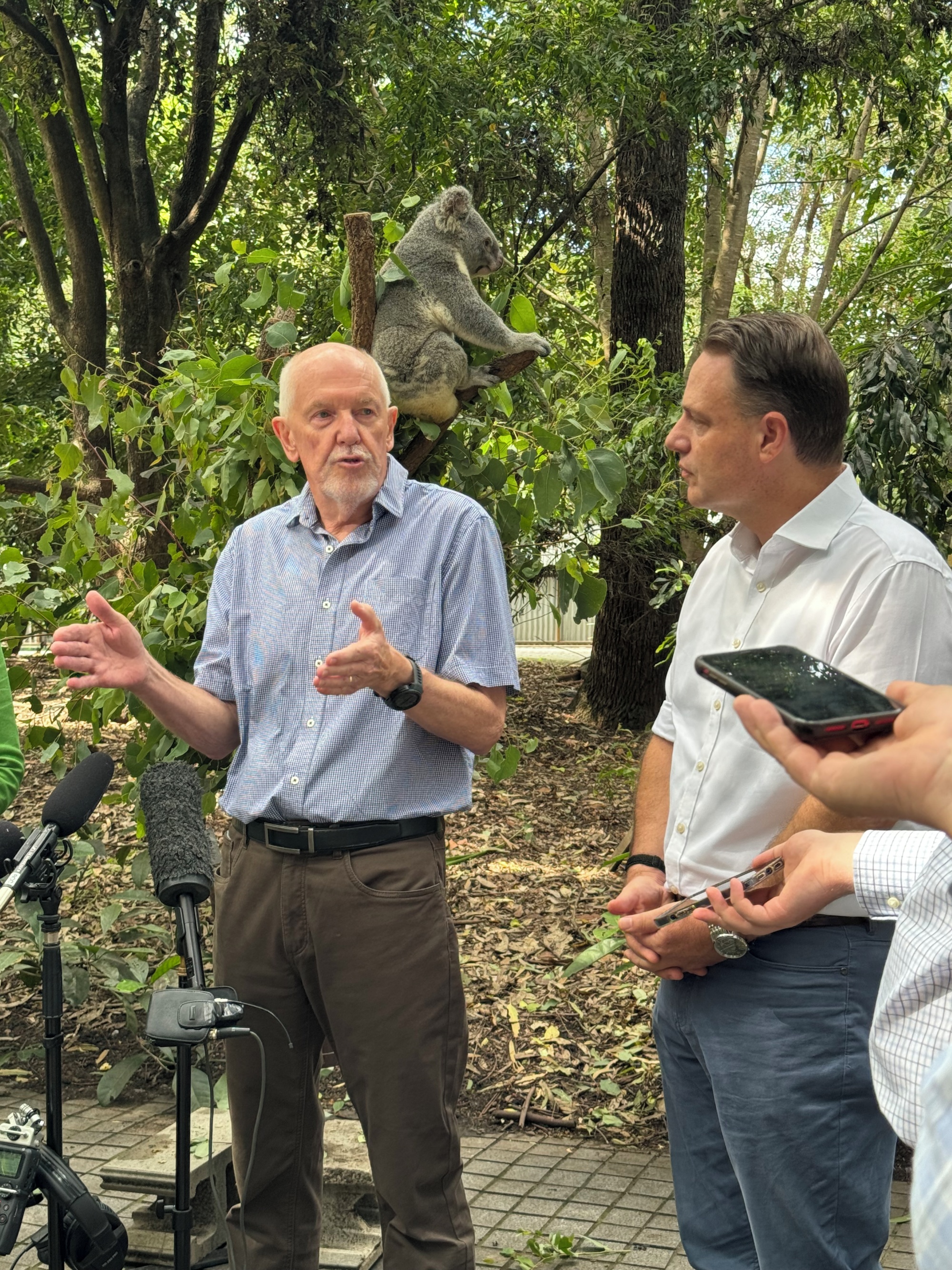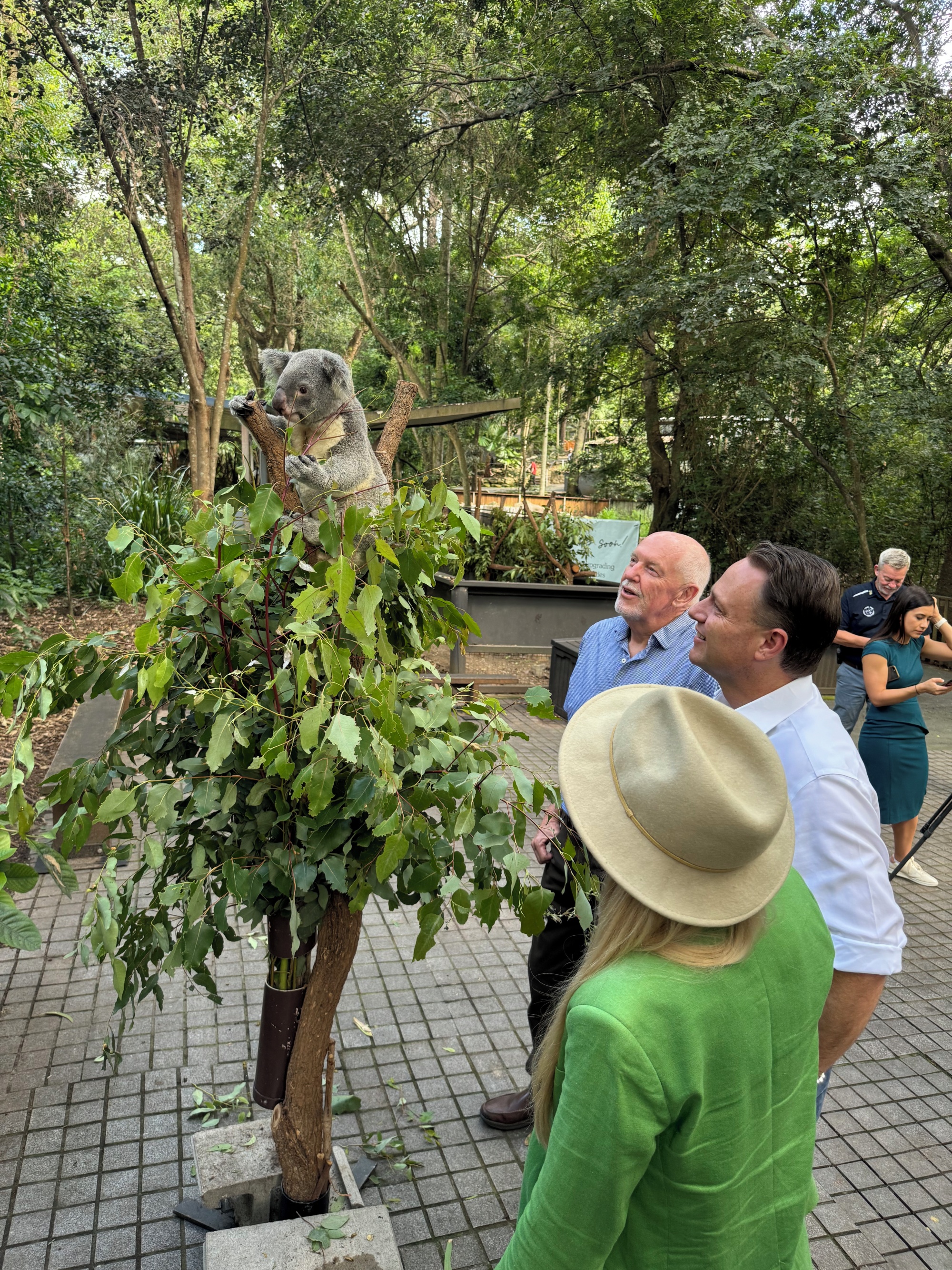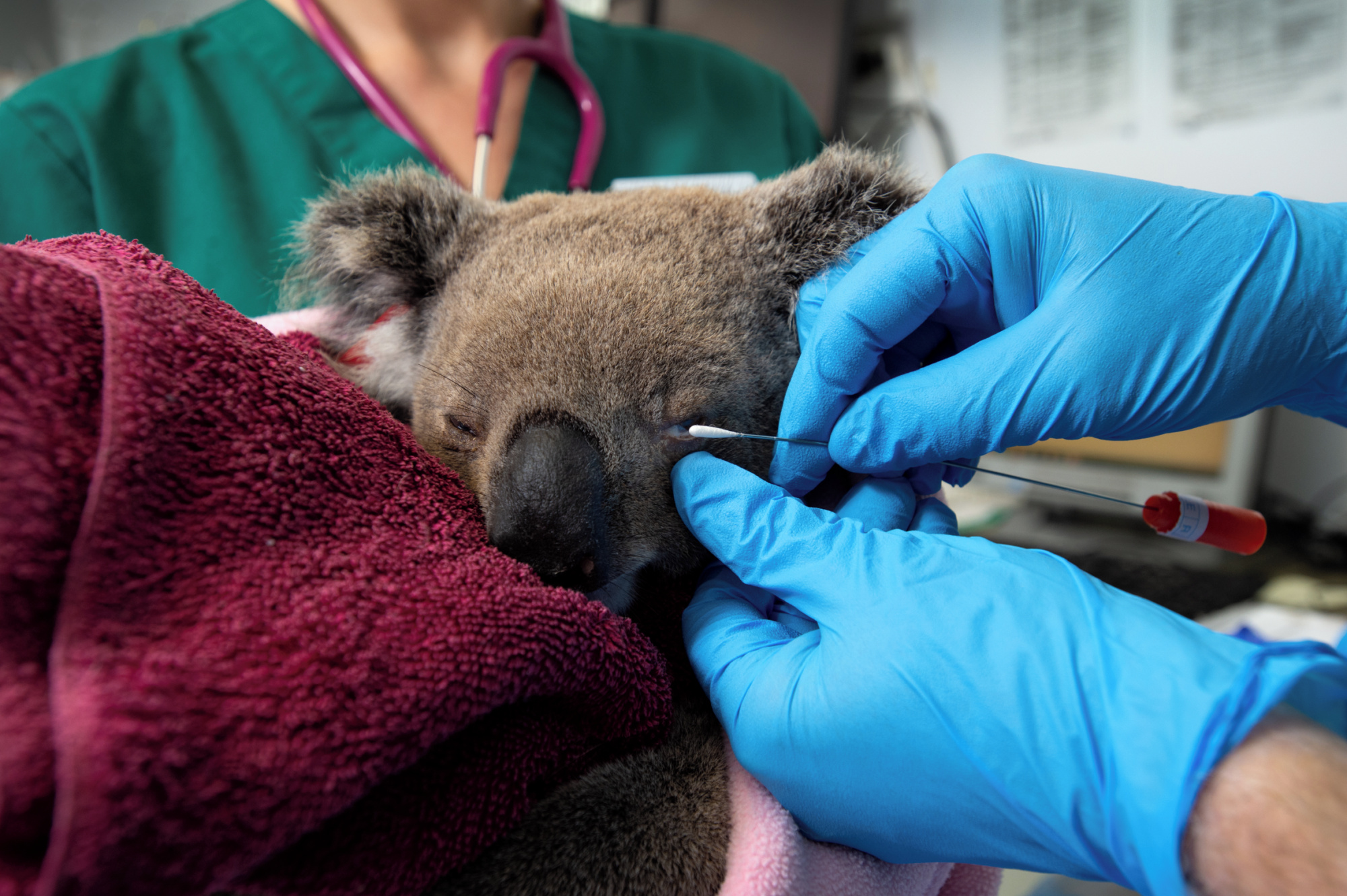Australian koalas are one step closer to better protection against the deadly spread of Chlamydia after a QUT koala vaccine received Brisbane City Council funding support.
The $150,000 funding allocation will assist with registration of the vaccine, so it can be used by veterinary clinics and wildlife hospitals without the need for university ethics approval.
While the vaccine is awaiting registration, Brisbane City Council will begin a two-year pilot vaccination program as part of a wider koala protection plan, before rolling out a city-wide vaccination program.

with Brisbane Lord Mayor Adrian Schrinner
at Lone Pine Koala Sanctuary
for the funding announcement. Picture: QUT
Brisbane Lord Mayor Adrian Schrinner said the vaccine would be a game-changer for koalas where colonies around Australia face a 21 per cent infection rate from the sexually-transmitted disease.
“By funding the registration of the koala vaccine we’re dealing with a key threat to our koala population,” Cr Schrinner said during a media call at the Lone Pine Koala Sanctuary.
“I want to see koala and other native species thrive because our city’s mixture of world-class entertainment combined with access to nature sets us apart and makes Brisbane the most Australian place on Earth.”
QUT School of Biomedical Sciences Professor Ken Beagley has been working on a koala vaccine since joining QUT in 2007 and his current research, in collaboration with the Currumbin Wildlife Hospital, is testing the vaccine’s efficacy within an isolated koala population over a five-year period.
“At the moment the koala vaccine is considered an experimental product,” Professor Beagley said. “You can only use it with ethics approval from a university.
“We now have enough data to show the vaccine is safe and effective and so the next step is to go for registration. Once the vaccine is registered, it will be available more widely, and veterinary clinics and wildlife hospitals will be able to use it without delay.”

has the largest koala population in the world.
Picture: QUT
Professor Beagley applauded the Brisbane City Council’s funding support to help with the costly process of applying for registration through the Australian Pesticides and Veterinary Medicines Authority and said in the meantime he looked forward to working in partnership with the RSPCA and The University of Queensland to vaccinate up to 40 koalas in Brisbane as part of the pilot vaccination program.
“We all want the same thing, a healthy koala population that is growing,” Professor Beagley said.
“After habitat destruction, dog attacks and car strikes, disease is the next most pressing issue for koalas and chlamydia is a major problem.
“A healthy koala can live for eight to 12 years in the wild. Once you get a geographically isolated population that is stressed, chlamydia can take hold. Infection causes infertility, blindness and urinary incontinence, and local populations can die out.
“Since the early 2000s we have seen a 70-80 per cent decline in many koala populations across Queensland so koalas need all the help we can give them.”
Professor Beagley said the first stage of the registration process would be to have the vaccine antigens made by CSIRO under Good Manufacturing Practice (GMP) to make sure ‘it doesn’t contain nasties like bacteria’.
“Then veterinary vaccine producer, Zoetis Australia, will formulate these, mixing the antigens with their adjuvant that stimulates the immune response, and take it forward for registration. During this process, more testing on the koalas may be necessary. The whole process of registration could take between 1-3 years.”

Currumbin Wildlife Hospital. Picture: supplied
Currumbin Wildlife Hospital senior vet Dr Michael Pyne OAM also applauded the funding announcement.
“It’s really exciting that there is an opportunity for this vaccine to become registered nationwide,” Dr Pyne said.
“Currumbin Wildlife Hospital is dedicated to the health and safety of koalas everywhere, and to the future of the species.”








